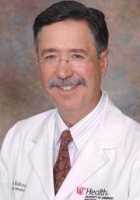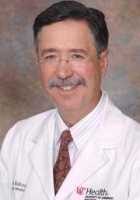
18 Jul Hepatitis C Treatment After Kidney Transplant May Extend Lives and Decrease Costs
MedicalResearch.com Interview with:
Mark H. Eckman, MD
Posey Professor of Clinical Medicine
Director, Division of General Internal Medicine
Director, Center for Clinical Effectiveness
University of Cincinnati Medical Center
Cincinnati, OH
MedicalResearch.com: What is the background for this study?
Response: People who are infected with hepatitis C virus and have kidney failure need a kidney transplant.
Recent studies have found that it is possible to transplant kidneys from donors who are infected with hepatitis C virus into patients who need a transplant and are already infected with the virus. In addition, drugs are available to cure most patients of hepatitis C virus, including those who have kidney failure. Infected patients who need a kidney transplant have 2 options. One option is to receive an infected kidney and then use drugs after the transplant to cure themselves and the transplanted kidney of the virus. Another option is to use the drugs first to get rid of the virus and then to receive a kidney from a donor who does not have hepatitis C virus infection.
For the more than 500,000 patients receiving dialysis for end-stage renal disease (ESRD), less than 4% receive kidney transplants. Because of the limited organ availability, hemodialysis is the final treatment for most patients with ESRD. Of the 10% or so of U.S. patients receiving dialysis who are infected with the hepatitis C virus (HCV), some are willing to accept HCV-infected kidneys, in part, because the wait times for such kidneys are shorter than those for HCV-uninfected kidneys. Because the yearly mortality rate for patients receiving hemodialysis is so high, between 4% and 16%, reducing the time to kidney transplant can have a dramatic effect on both survival and quality of life.
Because it may not be possible to do this type of research with actual people, we created a model that allowed us to estimate possible outcomes without using actual people.
The model was a computer program that combined the best available information to approximate what might happen to participants in a real-world clinical trial.
MedicalResearch.com: What are the main findings?
Response: Infected people who received a kidney from an infected donor and then received treatment for chronic HCV infection were more likely to live longer and have lower costs than HCV-infected people who were treated for HCV before transplantation and then received a kidney that was not infected. In large part, this was due to the almost 1.5 year decreased waiting list time for an HCV-infected kidney.
MedicalResearch.com: What should readers take away from your report?
Response: People who are infected with hepatitis C virus, have kidney failure, and need a kidney transplant are likely to be better off if they get their kidney from an infected donor and wait to cure their hepatitis C until after they receive their transplanted kidney.
MedicalResearch.com: What recommendations do you have for future research as a result of this work?
Response: The devastating impact of the opioid crisis in this country has created an opportunity to obtain high quality organs, albeit many of which are HCV-infected, that could help address the scarcity of kidneys available for transplantation. Indeed, clinical studies are underway investigating the use of HCV-infected kidneys for transplantation in ESRD patients who are themselves not HCV-infected. Two recent small pilot trials have demonstrated 100% HCV cure rates for such a strategy. These results require confirmation in larger studies, but they provide hope that these previously discarded organs could be used to both reduce waiting times and increase the number of patients with ESRD who are able to obtain kidney transplants.
Disclosures –
Dr. Sherman has grants/contracts (institutional funding) from AbbVie, Bristol-Myer-Squibb, Gilead, Innovio, Intercept, MedImmune, and Merck, and serves on advisory boards for Abbott Laboratories, Gilead, MedImmune, Merck, and Shionogi. He also serves on safety monitoring boards for Watermark and MedPace. Dr. Thakar is a consultant to Merck and NxStage. He has investigator-initiated funding from Bioporto and Otsuka. Drs. Eckman and Woodle have no conflicts of interest with the current study other than grant support from Merck through the Merck Investigator Studies Program.
Citation:
[wysija_form id=”3″]
[last-modified]
The information on MedicalResearch.com is provided for educational purposes only, and is in no way intended to diagnose, cure, or treat any medical or other condition. Always seek the advice of your physician or other qualified health and ask your doctor any questions you may have regarding a medical condition. In addition to all other limitations and disclaimers in this agreement, service provider and its third party providers disclaim any liability or loss in connection with the content provided on this website.
Last Updated on July 18, 2018 by Marie Benz MD FAAD

